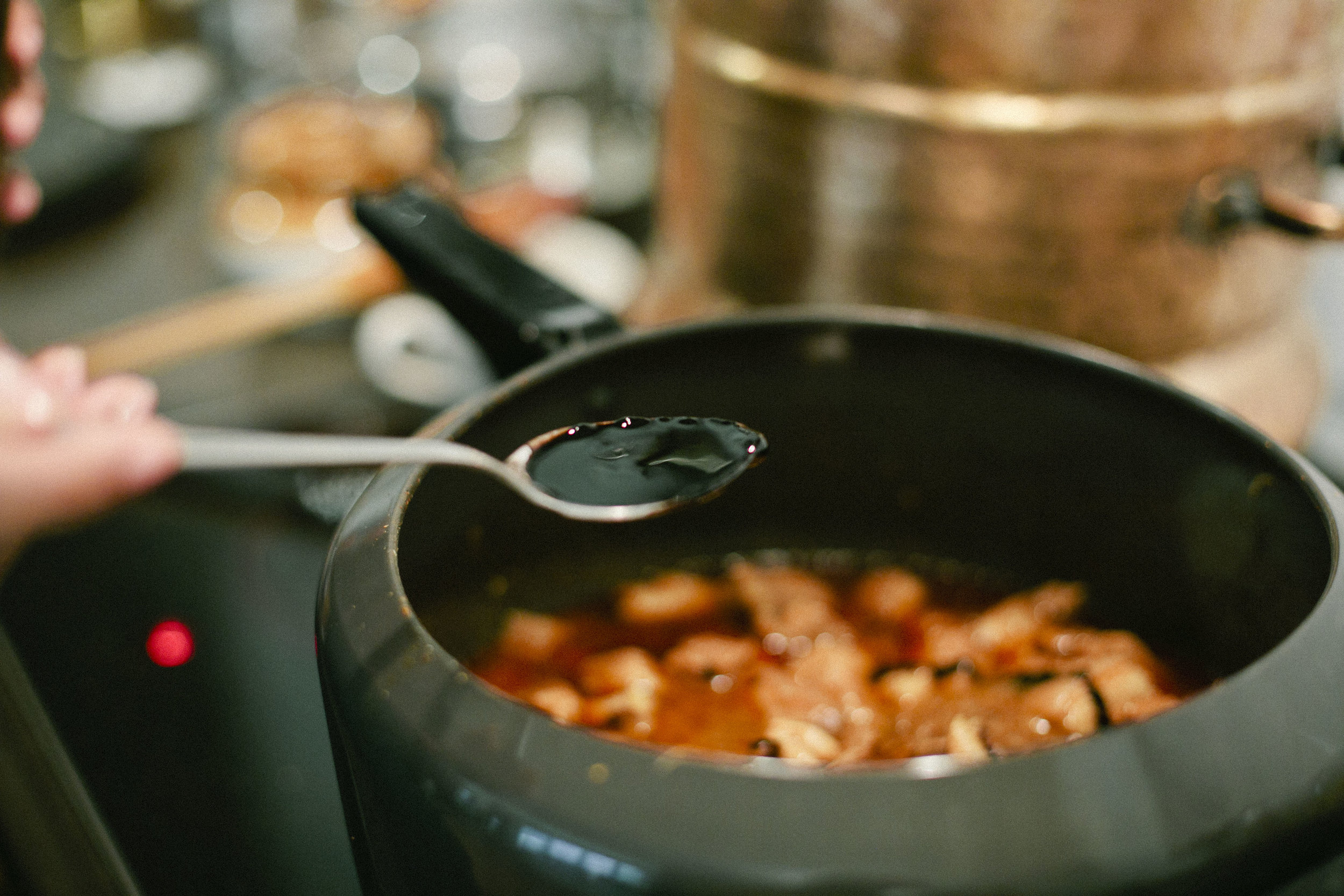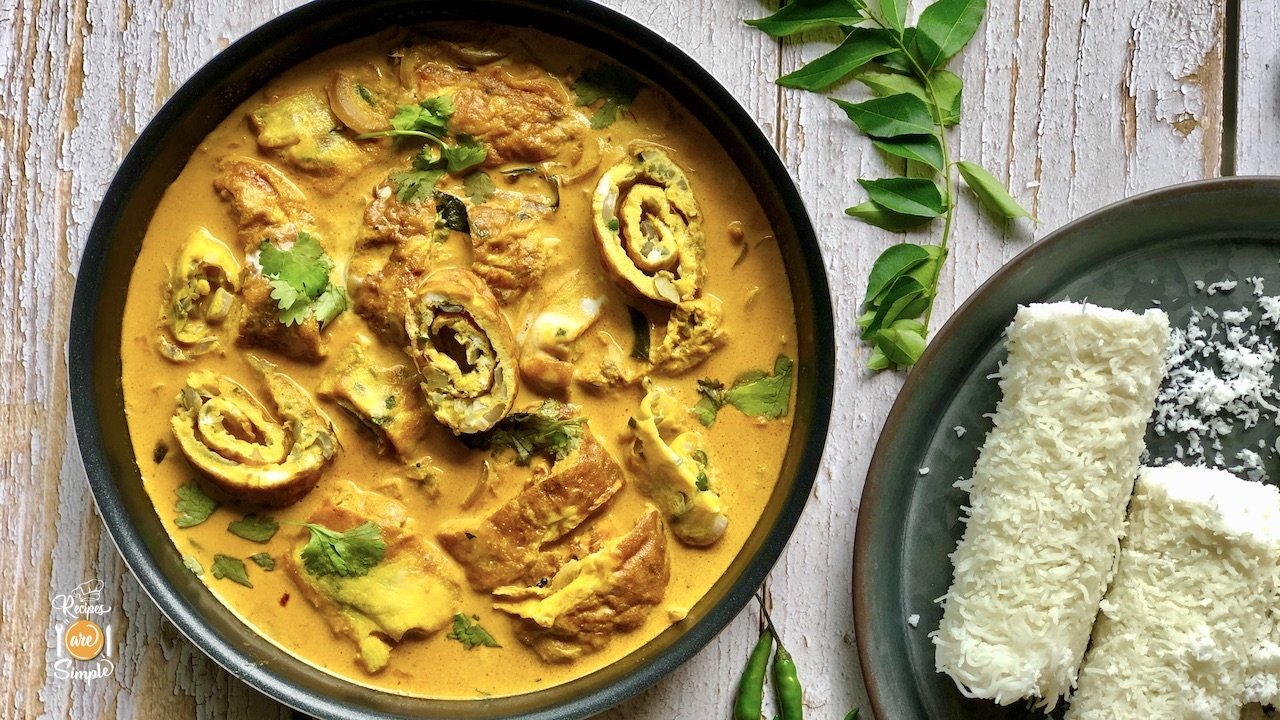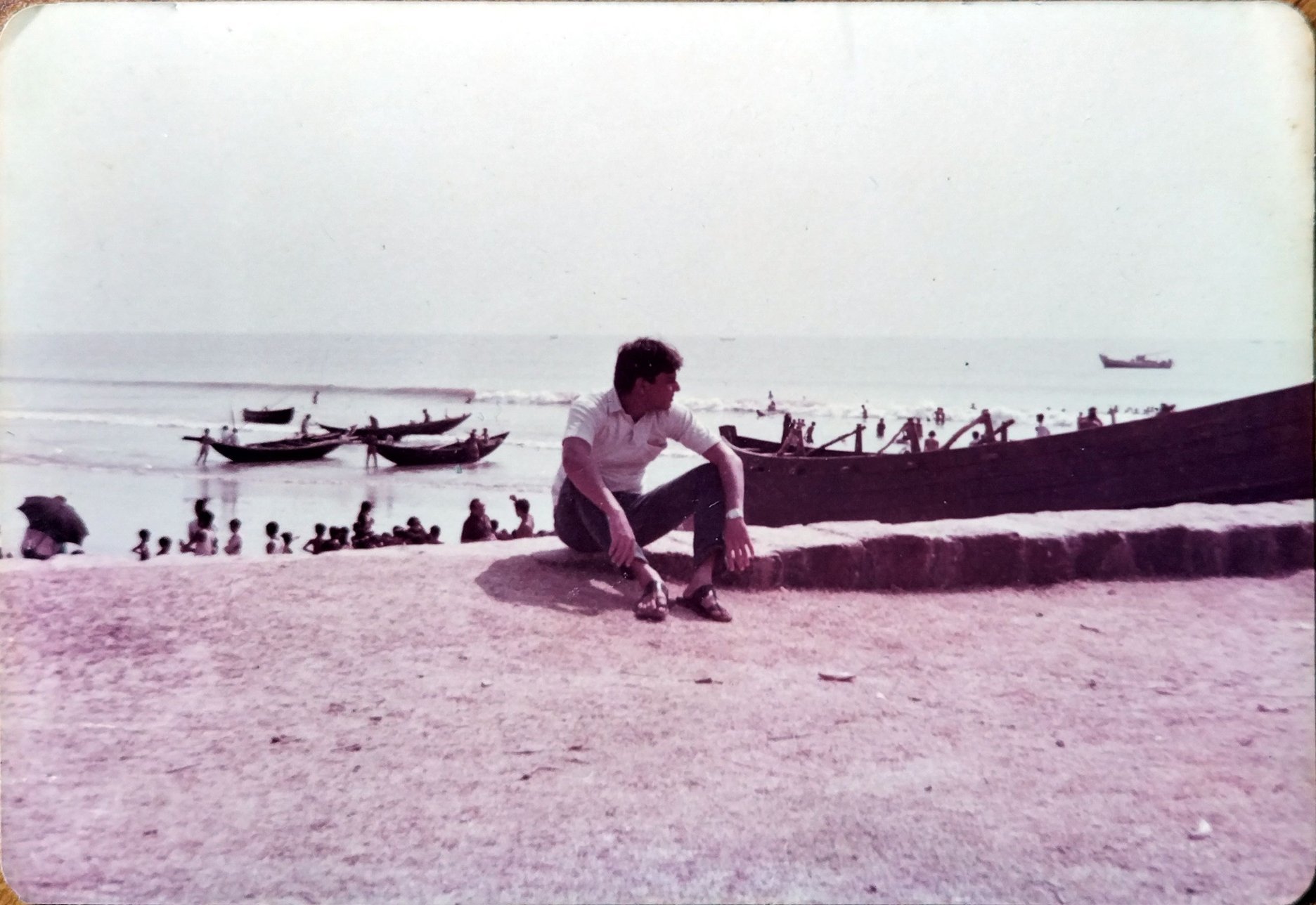At Home With Kaveri Ponnapa

#1000Kitchens is a series that takes you into kitchens all over the country, documenting heirloom recipes that tell a story. In this instalment, we visit Kaveri Ponnapa, renowned food writer and author of The Vanishing Kodavas, as she cooks us her family's Pandi Curry.
We lean in to hear Kaveri over the pounding of spices. Her voice has an Audrey Hepburn quality to it; graceful, husky, quietly engaging. But her eyes are uninhibited, and they sparkle animatedly. She spoons a handful of roasted cumin into the mortar, and picks up the pestle. A full, earthy aroma fills her kitchen, and she apologises for the noise. The heat of the mixie blades affects the flavour of the spices, and she prefers the longer route, even if it is more painstaking. “Such a racket. But freshly roasted hand-pounded spices really do make all the difference.”
The cooker is simmering on the electric stove. Bubbling inside is a mix of lean pork, a bit of fat, and bone. “And skin, if you don’t mind cleaning it. All the good bits.” Kaveri likes to keep things ungarnished. Adding coriander is the surest way to spoil the dish, she tells us, as the pork needs to preserve itself over a few days. “This same dish will taste twice as good tomorrow.”
We are at Kaveri's Whitefield home for lunch on a sunny afternoon, and she is cooking the family Pandi Curry recipe for us. Past the high walls, a stately front door swings open, and we walk through an airy living room into a sun-drenched kitchen. French windows open into a small garden patch. Inside, a fruit bowl sits on delicately printed table linen, by a cupboard packed tight with cookbooks.
Kaveri pulls out a pear-shaped timer and sets it on the counter by an espresso machine (“We’re very grumpy until we have our morning coffee”). Then she joins us at the table where we are sipping on glasses of natti lime-juice from Coorg, tart in the way that only natti citrus is.
Pandi curry seems like the obvious choice for a dish in a Coorg household, but this isn’t just any Coorg woman. A food writer of repute, Kaveri has authored a book on the history and culture of the Kodava people, The Vanishing Kodavas, a project that spanned 15 years in the making. Her blogs, The Coorg Table and my personal favourite, Plantation Style, are reflections on life in the coffee and tea plantations in India, especially Coorg, now all but disappearing.
The Kodavas are a small community of less than 3 lakh people. They are hill people who live nestled in the lush Western Ghats. Isolated from the surrounding regions, their customs remain uniquely distinct from most of South India. Their rich oral tradition, religious practices and unique cuisine tell a story that has not yet been fully unraveled. Many believe the community migrated from the eastern Mediterranean, their traditions and customs dating back to the time of Alexander the Great, who marched through India in 300 BC.
Kaveri addresses the unspoken question that hangs in the air. As a young girl who dabbled in baking but had no real exposure to the Coorg kitchen besides eating the food that came out of it, this was the first of her grandmother’s recipes that she actually wrote down. “Of course, if I had actually asked her for a recipe, she’d have burst into hysterical giggles.” Like everyone in that generation, her grandmother cooked by measure of hand; recipes were inconceivable. “She would look at it, or smell it, and she would know it was done.”
Kaveri the young girl, she tells us, was a far cry from the poised woman, the well-travelled gourmand, and meticulous documenter of Coorg culinary tradition we have come to know. Instead, she was a scrappy young girl, matching the boys stride for stride, playing in the graveyard, or climbing treetops, returning home at mealtimes with scraped knees and muddied clothes. “My granddad would shake his head in despair and say, ‘This child will never walk, she will only run.’”
“As far as the kitchen goes, it was my grandmother and my mother in law who were the women in my life.” Kaveri’s grandmother was a quiet woman, with her eye on everything - the pickles, the gooseberries in brine, the syrups and the juices. In the afternoons when the house went quiet, she’d go out into the garden, tending the vegetables, or watering her roses. Nothing happened in the cowshed, or the piggery, or the chicken coop, without her knowing. “How did she do it? She could cook traditional food, as well as the jams, the jellies, and the pickles. She would bake the most incredible cakes on hot coals. In the afternoons, she’d fire up her cast iron English stove until the coals glowed red and hot. Then she'd line her battered aluminium cake-tin with newspaper and grease, and by tea time, there would be a lovely cake on the table - pink, chocolate or vanilla.” Kaveri would streak in and out of the kitchen at regular intervals. And as her grandmother, in her big blue apron, rolled out kadambuttus to go with the pandi curry she was making for Puthari, (the Coorg harvest festival), Kaveri unconsciously absorbed the “doneness of things.”
Back in her own kitchen, Kaveri is calm and methodical, much in the way she describes her grandmother. She reaches into the back of her kitchen cupboard, lined with antique vessels at the top, and pulls out a bottle of dark liquid. “This is magic.” She holds it out to us for a closer look. “I've had a bottle in the cupboard for years, so old, it fixed itself to the shelf, and split apart when we tried to get it out. My kitchen smelt like kachampuli for weeks,” she laughs. An unctuous, sharp-smelling syrup inches out, and she spoons it into the cooker for one last stir. The dish is fragrant, but the colour is not one we have come to associate with Coorg pandi curry – that darkly pungent dish, whose piquant flavours rise to meet you. “Traditional cuisine uses spice very deliberately. Pandi curry is spicy, but the fire comes from the peppercorn, not the red chilli.” The conversation moves to the current trend of over-spicing, that seems to be taking over restaurant kitchens, and contorting perceptions of Coorg cuisine.
“The Coorgs are very clan bound, closely guarding their recipes.” For the older generation, a deep bond had to be forged before secrets were shared. The passing on of recipes signified the final frontier between kindred spirits: “Write this down, but don't tell anyone. You need to have some secrets.”
Like with all food writers, the conversation eventually turned to what it means to be traditional or authentic. “A cluster of ingredients come together in particular geography, in a particular way, in a historic situation, and throws up certain dishes that are unique to that time, and that patch of land. It changes with each family; each clan makes it their own. But there is an intangible boundary,” Kaveri insists firmly. Once that boundary is crossed, it is no longer the same dish. It must be called something else. “This, here, is my version, as it was in the old days.”
For Kaveri, the true measure of success on this recipe came from her mother-in-law. She smiles as she pulls out a folder from her wooden cupboard. While she lived in London, her husband's mother would write her frequently, detailing local happenings and family gossip, always managing to squeeze in a recipe with every letter. Remnants from this extraordinary correspondence over food have been filed away lovingly; cutouts of letters, and scraps of paper with recipes pressed into small spaces, in tiny, neat lettering.
“I learnt a great deal from her, and we had a very special relationship. Like most women, she believed her cooking was the best, and I of course, was diplomatic – I never challenged her. Until one day, I made this curry.”
Kaveri recalls her eating in silence. First she said, ‘This is like what they used to make at weddings in the old days,’ with no small measure of nostalgia.
A while later, she sighed. ‘Ah, this is the best.’
And finally, ‘Radhika (as Kaveri is also known), will you write this down for me please?’
Kaveri unfolds a soft muslin cloth in the copper steamer on her stovetop, and delicately picks out the kadambuttus. We must eat it hot with pandi curry, she says. The gravy is a peaceful brown, the flavours clear and vibrant, humming an unsullied tune of meat and spice. The pepper, like a loving hand that props up the flavours with warmth, lets the pork, that most flavourful of meats, sing. Nothing detracts. The kadambuttus melt into the curry.
Kaveri Ponnapa's Pandi Curry
Ingredients
Spice Mix (freshly roasted and ground):
1 tbsp Mustard seeds
1 tbsp Cumin seeds
A pinch Fenugreek seeds
1 1/2 tbsp Black pepper
(Cinnamon, cardamom and cloves, optional)
1 kilo of pork (a combination of fat, bone and lean meat. Skin for added flavour, optional)
2 tbsp Coriander powder
Red chilli powder, to taste
Salt to taste
3 large Onions
3 inch root of ginger paste
1 1/2 bulbs of garlic paste
2 tsp kachampuli
2-3 green chillies, slit
4 tbsp Vegetable oil
2 cups of water
Method
Add a bit of turmeric to the meat and let it rest
In a heavy bottomed pan, heat the oil and fry the onions lightly
Add in the ginger and garlic paste. Fry till aromatic.
Add the coriander powder and red chilli powder.
Now, add in the pork
Cook on open high heat
Add 3 generous sprinklings of salt
Add the ground spices
Cook until the pork releases some water and fat.
Check for salt
Add in 2 cups hot water (depending on how much gravy you'd like, keeping in mind the quantity of water and fat released)
Pressure cook on low flame for 20 minutes
Release pressure and uncover
Add kachampuli. Allow to simmer.
Add in the green chilli and take off the heat.
Words by Anisha Rachel Oommen and photos by Aysha Tanya; Illustration by Tasneem Amiruddin.
YOU MAY ALSO LIKE:
















